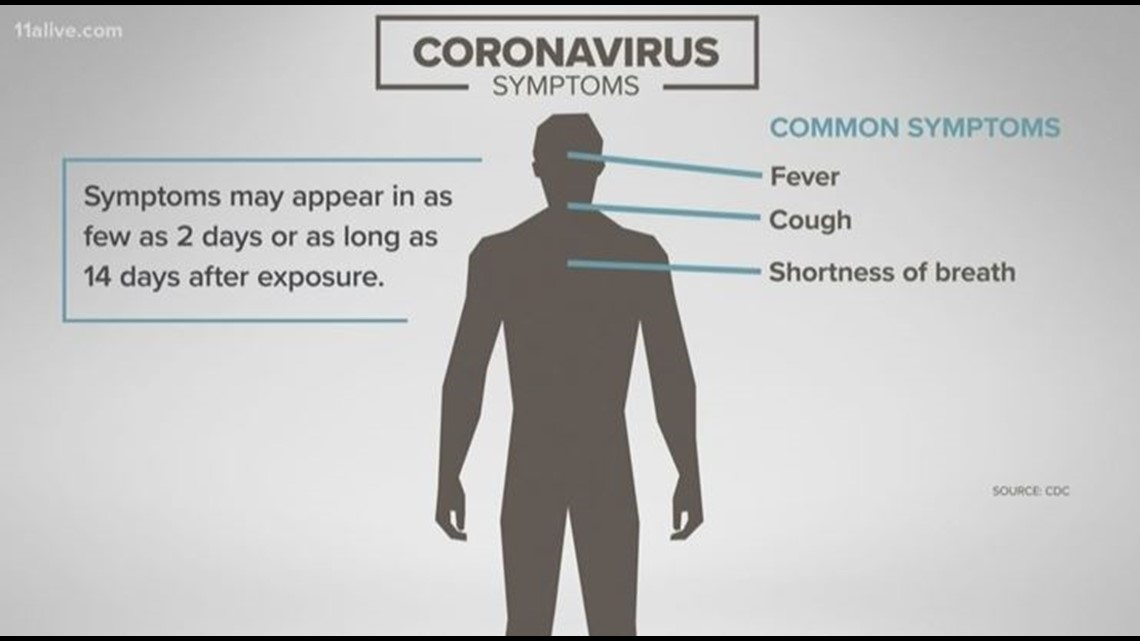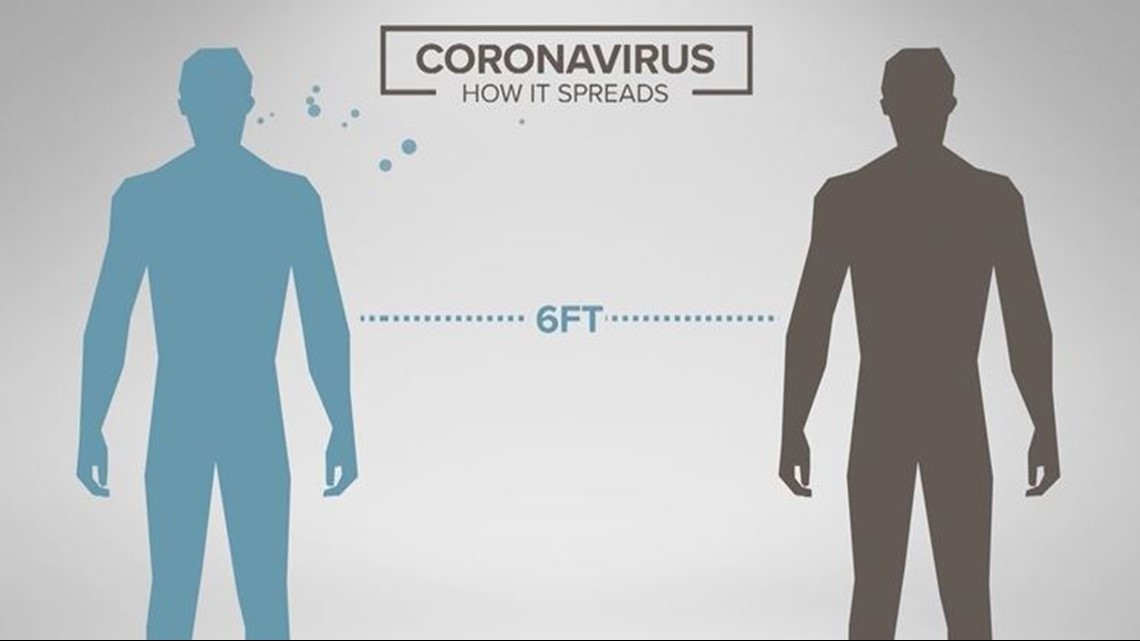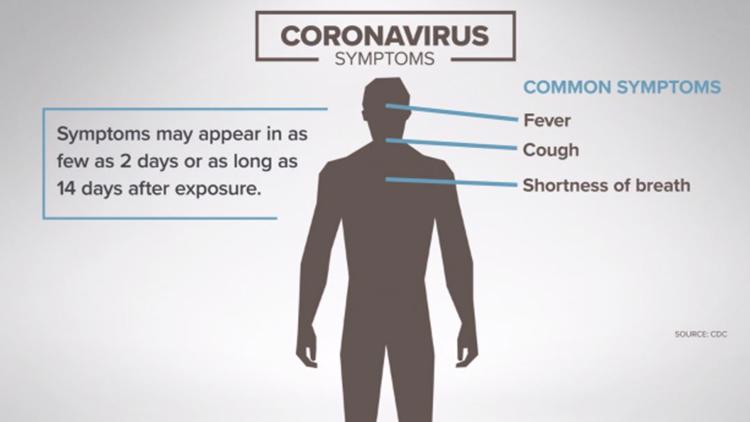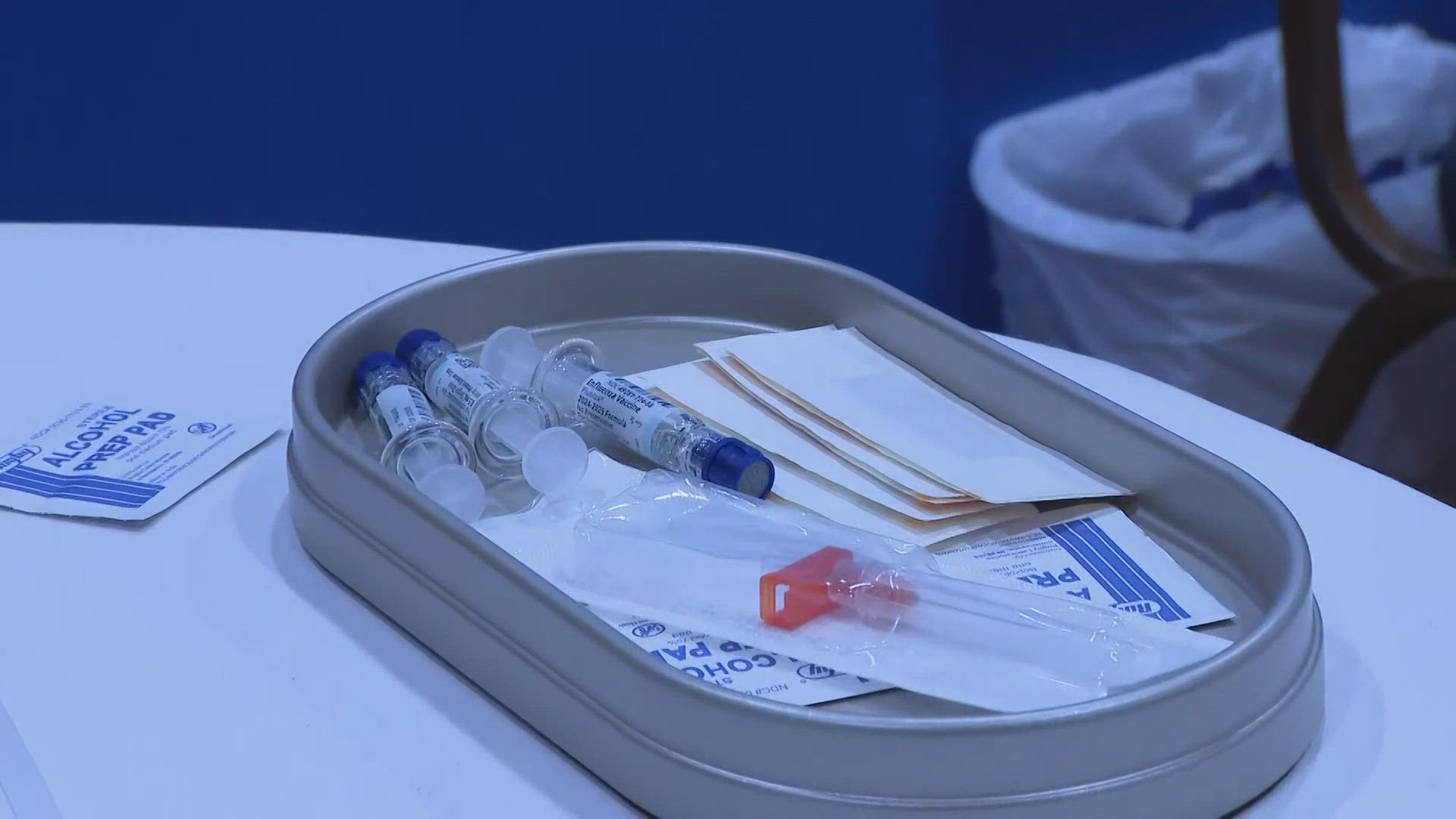GREENSBORO, N.C. — If you develop symptoms of the cold or flu you could become even more concerned about if you have the coronavirus. You might even want to know if you should be tested for the coronavirus.
SHOULD I BE TESTED FOR THE CORONAVIRUS?
The Centers for Disease Control and Prevention (CDC) says if you develop symptoms such as a fever, cough, and have difficulty breathing and know that you have been in close contact with a person known to have the coronavirus COVID-19 to stay at home and call your healthcare provider.
DEVELOP SYMPTOMS
The CDC also, said if you develop symptoms and have recently traveled from an area with an ongoing spread of COVID-19 to stay at home and call your healthcare provider.
The CDC said for older patients or individuals who have severe underlying conditions or are immunocompromised to contact their healthcare provider early, even if their symptoms are mild.
IMMEDIATELY CALL A HEALTHCARE PROVIDER
If you have severe symptoms, such as persistent pain or pressure in the chest, new confusion or inability to arouse, or bluish lips of face, contact your healthcare provider or emergency room and seek care immediately, according to the CDC.
Your doctor will then determine if you have coronavirus symptoms and if you should be tested.
HOW DOCTORS TEST FOR CORONAVIRUS
According to CDC, doctors are advised to do a swab of a patient's nose and throat, as well as collecting a sputum sample. The sample is then sent for lab testing.
SYMPTOMS OF CORONAVIRUS
According to the Centers for Disease Control, coronavirus patients have reported a mild to severe respiratory illness, with symptoms of cough, fever, and shortness of breath.
The CDC says those symptoms can appear within two days, or as long as 14 days after exposure.


HOW DOES THE VIRUS SPREAD?
The CDC says the COVID-19 coronavirus is believed to spread mainly from person-to-person, particularly between people in close contact with one another (within about 6 feet) through respiratory droplets produced by coughing or sneezing. The CDC says those droplets can be inhaled or end up in the mouths or noses of people who are nearby.


The CDC adds that people infected with COVID-19 are thought to be most contagious when they are most symptomatic (or in other words, when they are the sickest).
"Some spread might be possible before people show symptoms; there have been reports of this occurring with this new coronavirus, but this is not thought to be the main way the virus spreads," the CDC says on its website.
"It may be possible that a person can get COVID-19 by touching a surface or object that has the virus on it and then touching their own mouth, nose, or possibly their eyes, but this is not thought to be the main way the virus spreads," the CDC says.
HOW IS CORONAVIRUS TREATED?
According to the CDC, at this time "there is no specific antiviral treatment recommended for COVID-19. People with COVID-19 should receive supportive care to help relieve symptoms."
The CDC advises people who think they have been exposed to contact their health care provider.
HERE'S WHAT YOU CAN DO TO PREVENT SPREADING THE VIRUS
The CDC recommends these daily lifestyle tips for avoiding the spread of any type of respiratory virus:
• Avoid close contact with people who are sick.
• Avoid touching your eyes, nose, and mouth with unwashed hands.
• Wash your hands often with soap and water for at least 20 seconds. Use an alcohol-based hand sanitizer that contains at least 60% alcohol if soap and water are not available.
• Clean and disinfect frequently touched objects and surfaces using a regular household cleaning spray or wipe.
STAY INFORMED
The Centers for Disease Control has an in-depth frequently asked questions (FAQ) section on its website with additional answers for people looking for more information about COVID-19 coronavirus.
FACTS NOT FEAR
Remember facts, not fear when talking about the coronavirus. You should take the same measures recommended by health leaders to prevent the spread of the flu and other viruses. That means washing your hands, avoiding touching your face, and covering coughs and sneezes.
WHERE YOU GET INFORMATION ABOUT THE CORONAVIRUS IS IMPORTANT
It is important to make sure the information you are getting about the coronavirus is coming directly from reliable sources like the CDC and NCDHHS. Be careful not to spread misinformation about coronavirus on social media.
NC CORONAVIRUS HOTLINE
The state also has a special hotline set up where you can call 866-462-3821 or 2-1-1. for more information on the coronavirus. You can also submit questions online at ncpoisoncontrol.org or select chat to talk with someone about the virus.
You can also text keyword VIRUS to WFMY News 2 at 336-379-5775 to find out more information.
CORONAVIRUS NEWS
Stay connected to local, national and breaking news: Download the new WFMY News 2 app.
►Text the word APP to 336-379-5775
►For the latest weather conditions and forecast text the word WEATHER to 336-379-5775
►For traffic alerts text the word TRAFFIC to 336-379-5775



